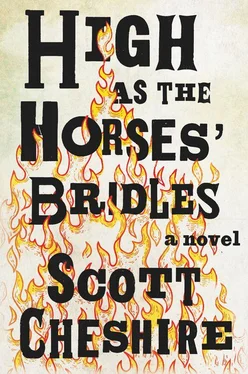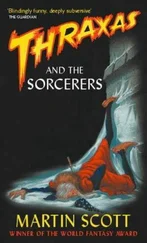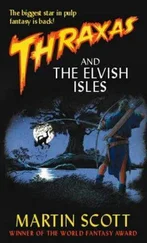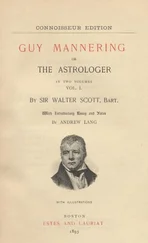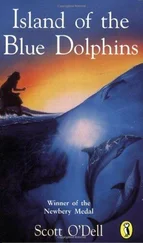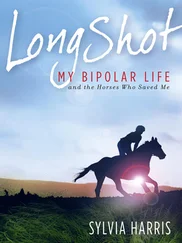A few weeks on, my father spotted us walking home from school. He later asked me if I’d made a proper witness for the Lord. Did I tell her what I believed, and say why she should believe it, too? I must’ve betrayed myself and instead showed how it had never occurred to me once, not once, and I expected him to show some disappointment in me at the very least, say I should be ashamed, et cetera — but, surprise: grinning, my father said, “My little man is in love. Promise you won’t tell your mother. Enough on her plate as it is.”
He was all of a sudden full of surprises.
That same year, I’m guessing this was 1983, when there were commercials everywhere for what was being billed as a “Historic Television Event.” A made-for-TV movie called The Day After, coming soon, and it would air on a Sunday. A Sunday! American audiences would finally see what a real Armageddon will look like — a nuclear one, yes, and man-made, but who says God’s above using such weapons? Why waste all that effort? There were stockpiles.
The whole congregation was in a tizzy.
We talked about it at home, over dinner, in the morning, for weeks before the movie ever started. What do you think it will look like? Do you think this is a sign of the times? Do you think the actors are aware that God is actually watching? And how could a young boy in love with Star Wars not want to see a movie like this? Special effects! Those two words echoed like a chant for me and every boy my age. The movie has special effects! My mother talked about the movie, but she stayed mostly quiet. It was Dad who said things like “This is ridiculous” and “We all know it’s not coming for twenty years more, because of Josiah’s vision.” I would say nothing, and he would say, “The movie’s bound to be wrong.” But he also couldn’t hide how excited he was. Taking my cereal box away from in front of me — I used to read every line of the ingredients list — he would eat dry Froot Loops with his hands, and said to the kitchen wall: “I wonder how much is actually based on scripture?”
Sunday at church, one week before, an announcement was made from the stage.
Announcements were a big deal, and hardly ever good news, more like “So-and-So has been excommunicated and asked to leave the congregation,” or “So-and-So is dead,” or something foreboding and starting with “It has recently come to our attention…” But this was about the movie. One of the elder brothers said to the hundred or so of us there: “There has been talk of a television film, I believe we all know what I’m referring to. The Day After promises to be not only an important film, but a relevant one, especially to our work here. Preparing ourselves for God’s Holy War. And after much serious thought, we’ve decided to incorporate the film into our ministry. So we’ll be viewing the film as a congregation. Next Sunday. In lieu of a sermon. And we’ll talk afterward, as a congregation. Please feel free to invite your friends and neighbors. This will be a rare opportunity to make witness. And regarding the children, the film will be quite realistic from what I understand. And so children will not attend alone but with parents. Let us pray.…”
Dad didn’t talk much on the way home.
That next day, a Monday morning, the mailman brought a letter regarding the kids of New York City’s public schools, suggesting parents not let their kids see a certain upcoming television movie. That it would be age-inappropriate.
That next Sunday, church was packed. Extended family members, curious neighbors dressed in weekend shorts, and borderline stragglers who hadn’t attended in years. Standing room only. I’d almost invited Bhanu, but, in the end, was so glad I didn’t.
Four TVs had been brought in and set up for all of us to watch. We got there early, and sat up front by a TV as big as a sofa, encased in wood, with a turntable on top. A hefty thing, a real piece of furniture, it must’ve weighed a ton. I wondered how they ever got it in there.
The lights went low.
The microphones set up by the TV speakers crackled.
There was chatter, and shuffling in the seats.
I looked around and saw the faces of people I knew from the neighborhood, and the faces of strangers. Which was both exciting and upsetting. They had entered a place they didn’t belong. They were dressed wrong. Talking, mumbling, when they should have been quiet. I saw the black man from the convenience store around the corner from church. He didn’t seem to be with anyone standing in the back, by himself. He wore jeans, and a T-shirt, his usual white apron rolled up and tied around his waist. He wasn’t looking at the TV, though. He was looking at the people in the room, the brothers and sisters. His face looked thoughtful, and bewildered. I realized he wasn’t there for the service, as such, or for spiritual reasons of any kind. He was curious: What do they do in there? I watched him scan the room, until he looked at me. He gave me a neutral sort of acknowledgment, Yes, I have sold you Pop Rocks, given you change for Donkey Kong.
I looked away from him and toward the TV, the opening credits and then …
I’ve watched it at least one more time, some parts twice more, even read about it, and still I can’t remember the plot; what was the plot? I remember the attack. A five-minute collage of mass death in Technicolor, the apocalyptic footage, fiery rain, the buildings blown to quick rubble and ashy voids, the rolling thunderheads of nuclear fire wiping out forests, livestock, and people, entire cities laid waste — and so much of this footage was real! Actual stock film clips of war and early atomic testing. All of this coupled with — how can I say it? — a cartoonish X-ray obliteration of people. A mother and her baby turn to the sky and zizzzzzz— dark bones in a flash, and they’re gone … The infant’s tiny skull … A man runs from his car for his life and zizzzzzz —his skeleton shows in a bloodred splash on electric white, and he’s dust … A large group together and what are they doing? Walking? Standing? Sitting in church? zizzzzzz —X-ray fried, now invisible, and gone … I have to say, watching this again as a grown man froze my insides. It’s too artful. Armageddon respects no bones. Only dust, instant dust … But to a boy, the scary stock footage within that film looked like news. I half expected to find the world outside our church destroyed when the movie was over. This was the End, factory manufactured, and yet the imagery was the same. This was not a biblical vindication, or God’s fire raining down. This was man versus man. All the fault of bloodlust and earthly dispute. This strikes me as a great and disturbing irony.
Lights up.
There was some muttering. No applause.
How did we feel? How many different kinds of response? Was I the only one so frightened by what I saw?
An elder took the stage and calmly asked, “Any questions? Comments?” There were a few, but not many before the real event took place.
My father stood up and started speaking.
* * *
Dad never spoke in church. He said it wasn’t his calling. So when this happened, Mom and I, we were dumbfounded. He stood, and stayed where he was, right beside his family, and said to the elder in a voice not quite loud enough: “I want to be a true believer, it’s all I’ve ever wanted out of life.” He turned and talked to the whole room now: “This means more like the Apostle Paul. More like our original first-century Christian brothers and sisters. Just a few decades from when our Savior walked this earth. Only miles from the places we read of. Galilee. Gethsemane.”
I looked around and there were people nodding their heads, like usual, Yes, brother, say it.
Читать дальше
